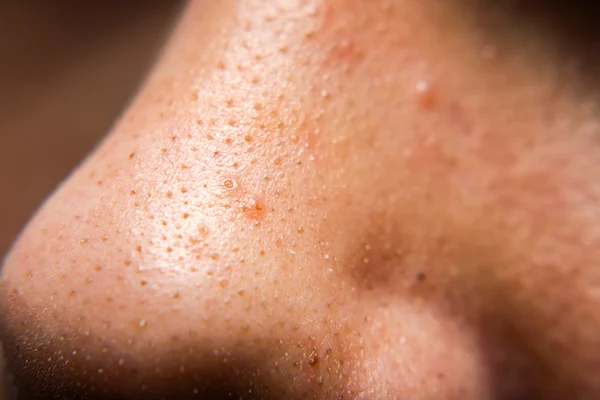Fasting during Ramzan is a deeply spiritual practice for Muslims worldwide, symbolizing discipline, devotion, and self-reflection. However, for individuals who suffer from migraines, this sacred month can present unique challenges. The combination of dehydration, fluctuating blood sugar levels, caffeine withdrawal, and disrupted sleep patterns often triggers headaches, making it difficult to observe Ramzan fasting without discomfort. Fortunately, with strategic planning and mindful habits, it’s possible to balance spiritual fasting while minimizing migraine symptoms. This comprehensive guide explores how to fast during Ramzan without triggering headaches, offering practical tips and expert insights tailored for migraine sufferers.
Muslims across the globe participate in Ramzan fasting, abstaining from food and drink from dawn (Suhoor) until sunset (Iftar). While this practice fosters spiritual growth, migraine patients often find it tough due to physiological changes like dehydration and low blood sugar. By understanding these triggers and adopting proactive strategies, you can observe Ramzan fasting successfully while keeping headaches at bay.
Understanding Migraine Triggers During Fasting
Migraines are more than just headaches; they’re neurological events influenced by various factors. For those fasting during Ramzan, common triggers include dehydration, blood sugar instability, caffeine withdrawal, and poor sleep. Each of these elements can intensify when you abstain from food and water for extended periods.
Dehydration, for instance, occurs when the body lacks sufficient fluids, a frequent issue during long fasting hours. Similarly, skipping meals can cause blood sugar levels to drop, prompting migraine symptoms. Caffeine-dependent individuals may experience withdrawal headaches, while irregular sleep schedules—common during Ramzan due to late-night prayers—further aggravate the condition. Recognizing these triggers is the first step toward managing migraines effectively while fasting.
Hydration Strategies for Migraine Prevention
Staying hydrated is critical when fasting with migraines, especially during Ramzan. Between Suhoor and Iftar, maximize your water intake to offset the hours without fluids. Aim to drink at least 8-10 glasses of water during non-fasting hours. Sip slowly rather than gulping large amounts at once to ensure better absorption.
Incorporating hydrating foods into your meals also helps. Cucumbers, watermelon, oranges, and yogurt are excellent choices that replenish fluids naturally. On the other hand, avoid salty or fried foods, as they increase thirst and dehydrate the body. By prioritizing hydration, you reduce the risk of headaches and support overall well-being during Ramzan fasting.
Maintaining Blood Sugar Balance
Blood sugar fluctuations are a major migraine trigger, particularly during fasting. To prevent this, focus on a balanced Suhoor meal that sustains energy throughout the day. Include complex carbohydrates like oats, brown rice, or whole-grain bread, which release energy slowly. Pair these with proteins such as eggs, lentils, or dairy, and healthy fats like nuts or avocado.
At Iftar, break your fast with dates and water—a traditional practice that quickly restores blood sugar levels. Avoid processed foods, sugary snacks, or fried items, as they cause rapid spikes and crashes. Consistent blood sugar levels minimize migraine risks, allowing you to observe Ramzan fasting comfortably.
Managing Caffeine Withdrawal
For coffee or tea drinkers, Ramzan fasting can lead to caffeine withdrawal headaches. Abruptly cutting off caffeine often results in irritability, fatigue, and head pain. To avoid this, reduce your intake gradually in the weeks leading up to Ramzan. Replace coffee with milder alternatives like green tea or herbal infusions during non-fasting hours.
These substitutes provide a gentle energy boost without the intense withdrawal effects of caffeine. By easing into this change, you can prevent headaches and maintain focus during your spiritual fasting journey.
Prioritizing Sleep for Migraine Relief
Sleep disturbances are common during Ramzan due to late-night prayers and early Suhoor meals. For migraine sufferers, irregular sleep can trigger symptoms like throbbing pain or sensitivity to light. Establish a consistent sleep routine by setting a bedtime and waking time that align with your fasting schedule.
Short naps during the day—20-30 minutes—can also help combat fatigue without disrupting nighttime rest. A well-rested body is less prone to migraines, making sleep a key factor in fasting successfully during Ramzan.
Stress Management Techniques
Stress is another migraine trigger that can intensify during fasting. The physical demands of Ramzan, combined with spiritual and social obligations, may heighten anxiety. Practice deep breathing exercises or mindfulness to stay calm. Reduce physical exertion by pacing yourself throughout the day.
Simple techniques, like sitting quietly for a few minutes or stretching gently, can lower stress levels. By keeping stress in check, you enhance your ability to fast without triggering headaches.
Adjusting Medications with Professional Guidance
If you take migraine medications, fasting may require adjustments to your schedule. Consult your doctor before Ramzan begins to discuss safe timing for your doses. Some medications can be taken during Suhoor or Iftar, while others may need alternative solutions.
Never alter your treatment plan without medical advice. A healthcare professional can tailor recommendations to ensure you manage migraines effectively while observing Ramzan fasting.
When to Seek Medical Advice
While strategic planning helps most migraine sufferers fast during Ramzan, some experience severe symptoms that persist despite precautions. If headaches become intense, frequent, or debilitating, visit a doctor promptly. Persistent migraines may signal an underlying issue requiring attention.
Islam provides exemptions from fasting for those whose health would deteriorate. If fasting worsens your condition, discuss alternatives with a religious scholar or medical expert. Your well-being matters, and Ramzan should be a time of peace, not pain.
Practical Tips for Fasting with Migraine
Here are actionable steps to observe Ramzan fasting without triggering headaches:
- Drink plenty of water between Iftar and Suhoor.
- Eat hydrating, nutrient-rich foods like fruits and vegetables.
- Choose complex carbs, proteins, and fats for sustained energy.
- Gradually reduce caffeine before Ramzan starts.
- Stick to a consistent sleep schedule and take short naps if needed.
- Begin Iftar with dates and water, avoiding processed foods.
- Manage stress with relaxation techniques.
- Consult a doctor about medication adjustments.
With these strategies, you can honor your spiritual commitment while safeguarding your health.
FAQ: Fasting with Migraine During Ramzan
Can fasting worsen migraines?
Yes, fasting can trigger migraines due to dehydration, low blood sugar, or caffeine withdrawal. Proper planning reduces these risks significantly.
What foods help prevent headaches during Ramzan?
Hydrating foods like watermelon, cucumbers, and yogurt, along with complex carbs like oats and proteins like eggs, stabilize your body during fasting.
Is it safe to fast with migraines?
For most, yes, with careful preparation. However, consult a doctor if migraines persist or worsen, as exemptions may apply.
How can I avoid caffeine withdrawal headaches?
Cut back on caffeine gradually before Ramzan and switch to herbal teas during non-fasting hours.
What if I can’t fast due to migraines?
Islam allows exemptions for health reasons. Speak to a medical professional and religious advisor to explore options like Fidya (feeding the poor).
Fasting with migraines during Ramzan is challenging but achievable with the right approach. By addressing dehydration, blood sugar balance, caffeine withdrawal, sleep, and stress, you can minimize headache triggers. Start preparing weeks in advance, stay hydrated, and choose nourishing foods to support your body. If needed, seek medical or religious guidance to ensure a healthy, peaceful Ramzan.
For more insights on managing migraines, explore resources like the Migraine Trust or consult a neurologist. With thoughtful planning, you can embrace the spiritual essence of Ramzan without compromising your well-being.























